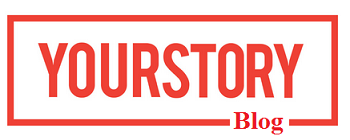
As “blockchain” is uttered, the first thing that jumps into everyone’s mind is Bitcoin. Well, the use of blockchain goes way beyond cryptocurrencies. These days, businesses and even governments are using blockchain technology to improve operations such as transparency, security, and efficiency. Let us dive into what other options are available to utilize this technology.
Revolutionizing Supply Chain Management
Management of supply chains is an intricate web that is composed of a myriad of different people, thus making clarity and traceability a daunting task. With blockchain, all transactions can be conducted with complete accuracy and without the fear of tampering due to the provision of a decentralized ledger.
As an illustration, Walmart has integrated blockchain technology to monitor the food supply chain from farm to shelf, helping in reducing the time needed to trace produce from days to mere seconds. This increases food safety and trust among consumers.
Also, luxury brands have embraced blockchain technology to authenticate products, ensuring that customers don’t miss out on genuine luxury items. The Aura Blockchain The consortium, which includes Prada and LVMH, provides digital certificates of authenticity using blockchain technology to ensure accurately branded luxury goods.
Improving Government Transparency Alongside Effectiveness
The use of blockchain technology systems has been adopted by different governments in a bid to eliminate transparency issues, combat fraudulent activities, and improve the overall efficiency of services delivered. Through the digitization of records and processes, the risk associated with data breaches, tampering, and even perusal without authorization is greatly reduced.
Touted as the most digitally advanced country in the world, Estonia has integrated blockchain into its e-government services by providing secure health records, judicial systems, and legislative processes, which is bound to improve the public’s trust in government operations.
Also, blockchain technology is being researched for identity management, voting systems, land registry, and asset ownership verification. These technologies work to thwart tampering with rights that are vital in a democracy and ownership.
Streamlining Human Resources and Employee Surveillance
Maintaining productivity levels and managing employee performance are constant dilemmas for businesses and organizations. Blockchain could be the answer they’re looking for, as it enables transparent and trustless broadband records of employee activities.
Applications like the Controlio software use blockchain technology to keep track of employee computer usage through an employee tracker system. This ensures security and responsibility, aiding performance assessments and compliance with workplace laws.
Organizations should take the time to consult reviews of these applications, as they could help the organization in achieving its goals while also adhering to the values of the company.
Personal Insight: Integrating Blockchain into Daily Activities
A mid-sized logistics firm I worked with had issues with shipment verification and tracking. Adopting a blockchain-based solution automated these processes and eased client disputes by enabling real-time tracking. The remarkable increase in operational efficiency and client satisfaction, along with the reduced operational costs, was a game changer.
Final Thoughts: The Need to Embrace Blockchain
The use of blockchain technology is not a concept of the future. It’s being used and improving innovation in various sectors. Government services, supply chain management, and even human resource functions can benefit from this revolutionary technology.
As more people and authorities start adopting blockchain, they need to re-educate themselves and understand the technology for its better integration into processes. It further enables organizations to increase operational transparency and streamlined business processes.

